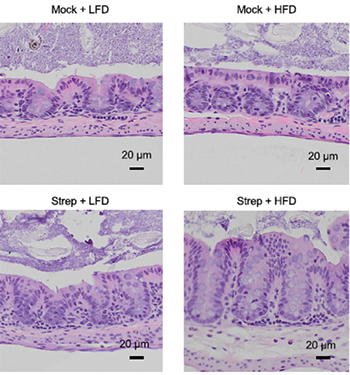
Diet rich in sugar, fat damages immune cells in digestive tracts of mice. Eating a Western diet impairs the immune system in the gut in ways that could increase risk of infection and inflammatory bowel disease, according to a study from researchers at Washington University School of Medicine in St. Louis and Cleveland Clinic.
The study, in mice and peop...
Read More








Recent Comments